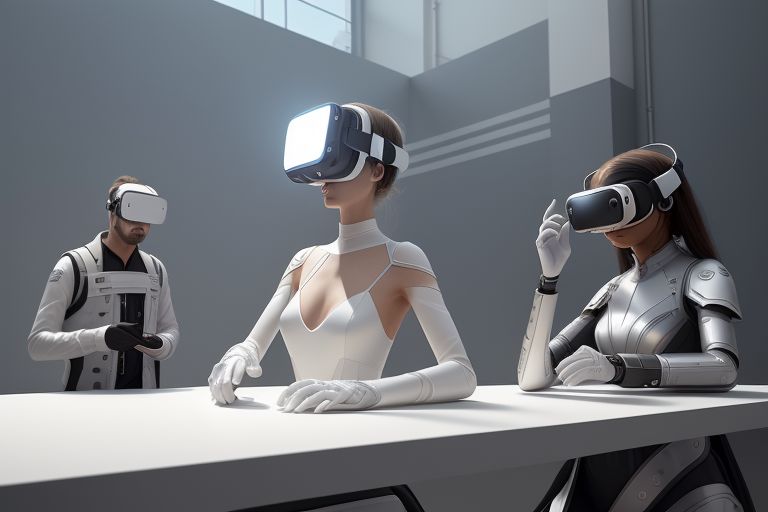Once dominated by the interplay of human imagination and manual dexterity, the fashion industry is now undergoing a profound transformation. Catalyzed by the emergence of deep technology and advanced innovations such as artificial intelligence (AI), virtual reality (VR), augmented reality (AR), blockchain, and the Internet of Things (IoT) the industry is being fundamentally reshaped. This harmonious fusion of artistry and technology signals a future where design and function are unified with unprecedented precision and creativity.
Artificial Intelligence (AI): The Pinnacle of Creativity and Efficiency
AI is reshaping fashion by predicting trends and accelerating the design process. It can analyze vast datasets to forecast emerging styles and refines stock-keeping units (SKUs) through real-time data analysis. Generative AI, a cutting-edge technology, can convert simple sketches into complex designs by drawing from historical collections and creative imagery, offering a breadth of design options that surpass human capabilities. Moreover, AI is enhancing inventory management by optimizing stock levels, aligning supply with demand, and thereby elevating profit margins.
Virtual and Augmented Reality (VR/AR): The Digital Runway Experience
VR and AR are transforming the way consumers interact with fashion by creating immersive shopping environments. Renowned brands are leveraging technologies to construct virtual showrooms, enabling shoppers to navigate collections and virtually try on outfits. This digital fitting room experience enhances fit accuracy and personalizes the shopping journey, making it both entertaining and informative.
Blockchain Technology: The Foundation of Trust and Transparency
Blockchain is has the potential to revolutionize the fashion supply chain by providing an unalterable record of transactions. This enhances traceability and curbs counterfeiting, which in turn builds consumer trust. The technology’s ability to track products from raw materials to the end consumer supports sustainable and ethical practices, addressing environmental concerns within the industry.
Smart Textiles and IoT: The Convergence of Fashion and Functionality
The integration of smart textiles with IoT introduces a new era of interactive clothing. Garments embedded with sensors can track health metrics or adapt to environmental conditions, offering a new dimension of wearability. IoT-driven features, such as RFID tags, facilitate real-time stock management, reducing waste and enhancing operational efficiencies.
3D Printing and Digital Fashion: A Sustainable and Customizable Frontier
3D printing represents a sustainable fashion production revolution, as it minimizes material waste and allows for intricate designs that traditional methods cannot match. Digital fashion, on the other hand, presents an innovative concept where consumers can purchase virtual apparel for their digital personas, merging the physical and digital fashion worlds.
Impact on Industry Dynamics
- Operational Efficiency: Technology-Driven Process Optimization
The integration of AI, 3D printing, and blockchain is fostering a new epoch of operational efficiency in fashion. These technologies streamline production processes, reduce waste, and improve supply chain visibility. AI-powered design tools and trend analysis accelerate market response times, enabling brands to adapt swiftly to evolving consumer preferences.
- Consumer Engagement: Personalization and Immersion
Deep tech is elevating consumer experiences by providing personalized recommendations and immersive retail environments. AI and IoT empower brands to tailor their offerings to individual tastes, strengthening customer loyalty. VR/AR integration in stores creates a blend of physical and digital experiences, redefining how consumers connect with brands.
- Sustainability and Ethics: The Quest for a Responsible Industry
Sustainability and ethical production are central to deep tech’s influence on fashion. Blockchain ensures transparency in supply chains, promoting responsible sourcing and production. Meanwhile, AI-assisted trend forecasting and 3D printing reduce overproduction and waste, steering the industry toward environmental stewardship.
Takeaway
Deep technology is not an adjunct to the fashion industry—it is its very essence. By intertwining innovation with creativity, it is reshaping the fabric of design, production, and consumer engagement. As these technologies mature, they will play a pivotal role in dictating fashion’s trajectory. The future holds promises of greater operational efficiency, sustainability, and a more personalized shopping experience, as the industry continues to embrace and integrate these game-changing advancements.






